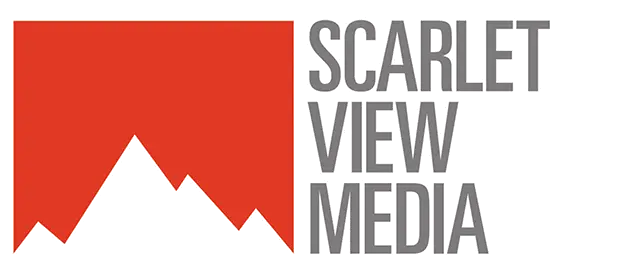UNDERWATER FILMMAKER WORKSHOPS
Go From "Videographer" to Filmmaker In 7 Days!
If you are a certified SCUBA Diver looking to either improve your existing skills in capturing underwater video or you want to start from scratch, join multi-award winning Film-Maker David Diley for one of our week long workshops, designed to help you go from "Videographer" to "Storyteller."
The entire week was fantastic, the resort was perfect for divers who needed to be in and out of the water regularly during the day, and in a great location with world class diving on its doorstep. The course was well structured, starting off with the basics and moving onto more in depth learning by the end of the week. It is designed to cater to people with varying degrees of existing knowledge, and with basic to more advanced camera setups. This was possible due to the emphasis on the filming process as a whole, giving us an understanding of what it is like to take an idea from conception and planning through to filming and post production.
Ollie Putnam
This was one of the best workshops I have ever attended. The training was very inspirational, energizing, bringing lots of ideas. The venue, and materials were great, and of course the presenter Mr. David Diley was absolutely an amazing coach and mentor throughout the workshop. I recommend this training for divers interested in Underwater Film-making. It was simply exceptional and I cannot wait to learn more with them.
Thamer Habis
I did the 1-week underwater filmmaking workshop with David Diley in Marsa Shagra, Egypt. That week was definitely a turning point in my knowledge and future plans in underwater video. David taught us a holistic approach to filmmaking, which gets you to think of all aspects of making a film, not just how to handle your camera when underwater. I also really enjoyed the parts about storytelling and connecting viewers to the people in the film. I came out of this workshop looking at filmmaking in a completely different way, and I would definitely recommend any aspiring underwater filmmaker to attend this workshop and learn from David’s expertise.
Kareem Olabi
The technical knowledge and advice David was able to provide was very impressive, and he was able to taylor what he was saying to everyone of us on the course, no matter what camera you had. As a result of the week spent in Egypt on this workshop, I feel like my skills and understanding in film making have improved hugely. I feel more able to use shots and editing techniques to create more compelling films, and not just nice videos. I would recommend Davids workshops to anyone who has an underwater camera (of any kind), and gets excited about filming underwater to create something that has feeling.
Dan Abbott
I signed up for the underwater film making workshop with David Diley hoping to improve my underwater video shooting … But I left with much more. I learned how to direct and plan for a film and now know lots of tips and tricks that can be used while shooting. The conversation and advice about my future plan was priceless… Not only did it help me a lot but also encouraged me to start and think of a bigger project than I planned for
Abdulrahman Selim
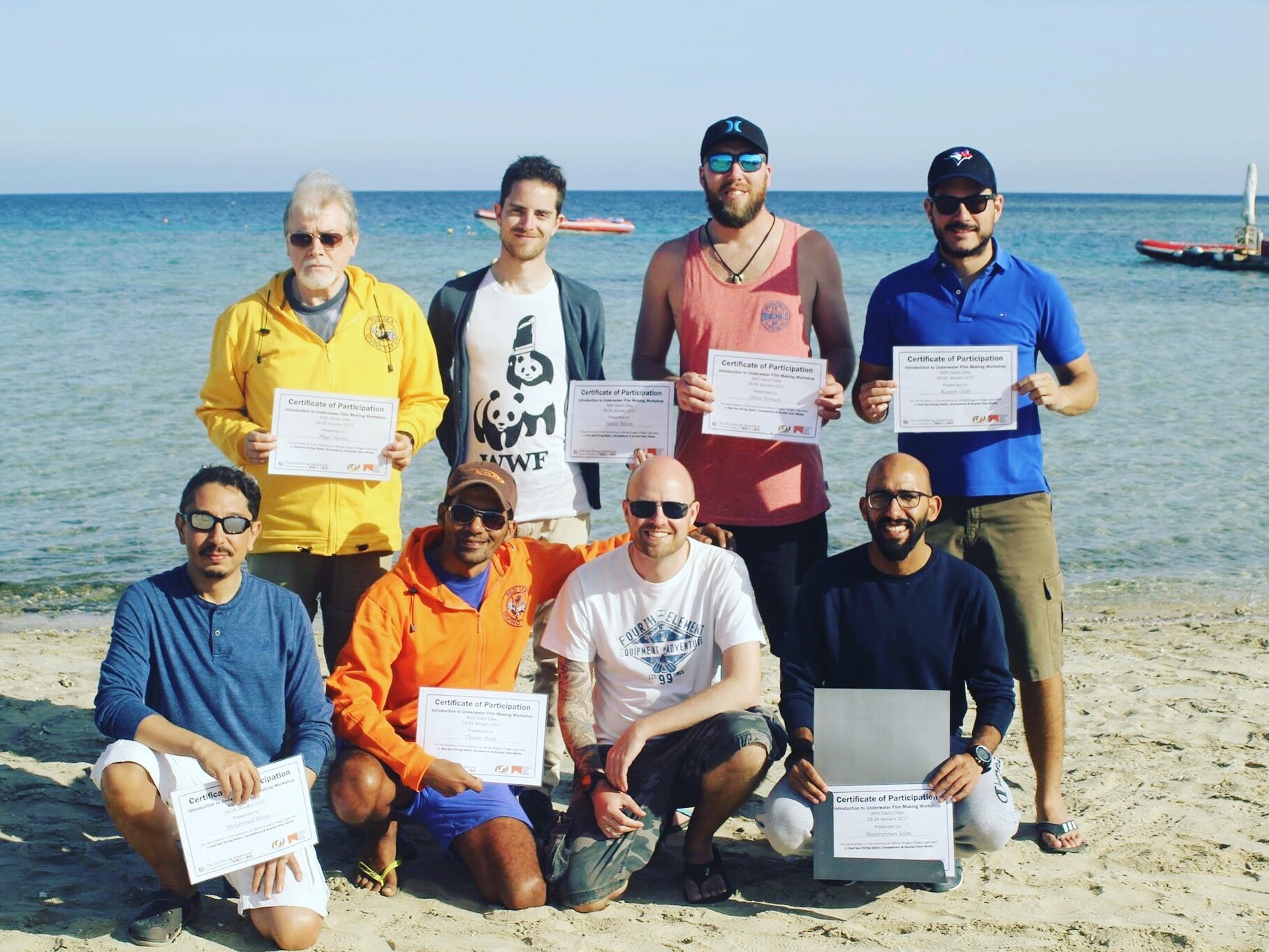
Become a storyteller.
Our workshop, run in conjunction with Red Sea Diving Safaris and Oonas Divers takes the traditional approach to Underwater Videography Workshops, adds a whole host of innovative content and drags it very much into the 21st Century. What makes our workshops different is their focus on unlocking your potential as a storyteller.
Designed to cater for all abilities but especially relevant to beginners and intermediate level attendees, the workshop aims not only to expand your knowledge of the technical aspects of filming underwater, but more importantly, to inspire you to unlock your creativity to help you tell engaging stories using your own creative voice.
You will learn about underwater cinematography and the art of diving as a camera operator, editing and post production, including colour correction and grading, topside cinematography and effective storytelling techniques, sound design and how best to deliver your videos for either public performance or online streaming, everything needed to turn your videos into engaging short films and all with a focus on achieving everything on a low budget, whether you have a GoPro, or a top end broadcast camera.
Be creative. Have fun.
The primary objective of the workshop is to allow you to flourish in a creatively stimulating and non-competitive environment which encourages you to try different things and truly find talents you may not have previously known you have.
Team work, questions and enthusiasm are encouraged and you will have unrestricted access to an award winning film-maker with professional expertise both behind and in front of the camera, as well as the entire post-production process.
Whether you want better holiday videos to share with friends or you want to become a professional yourself, this workshop is the ideal place to do some world class diving, learn and most importantly, have fun!
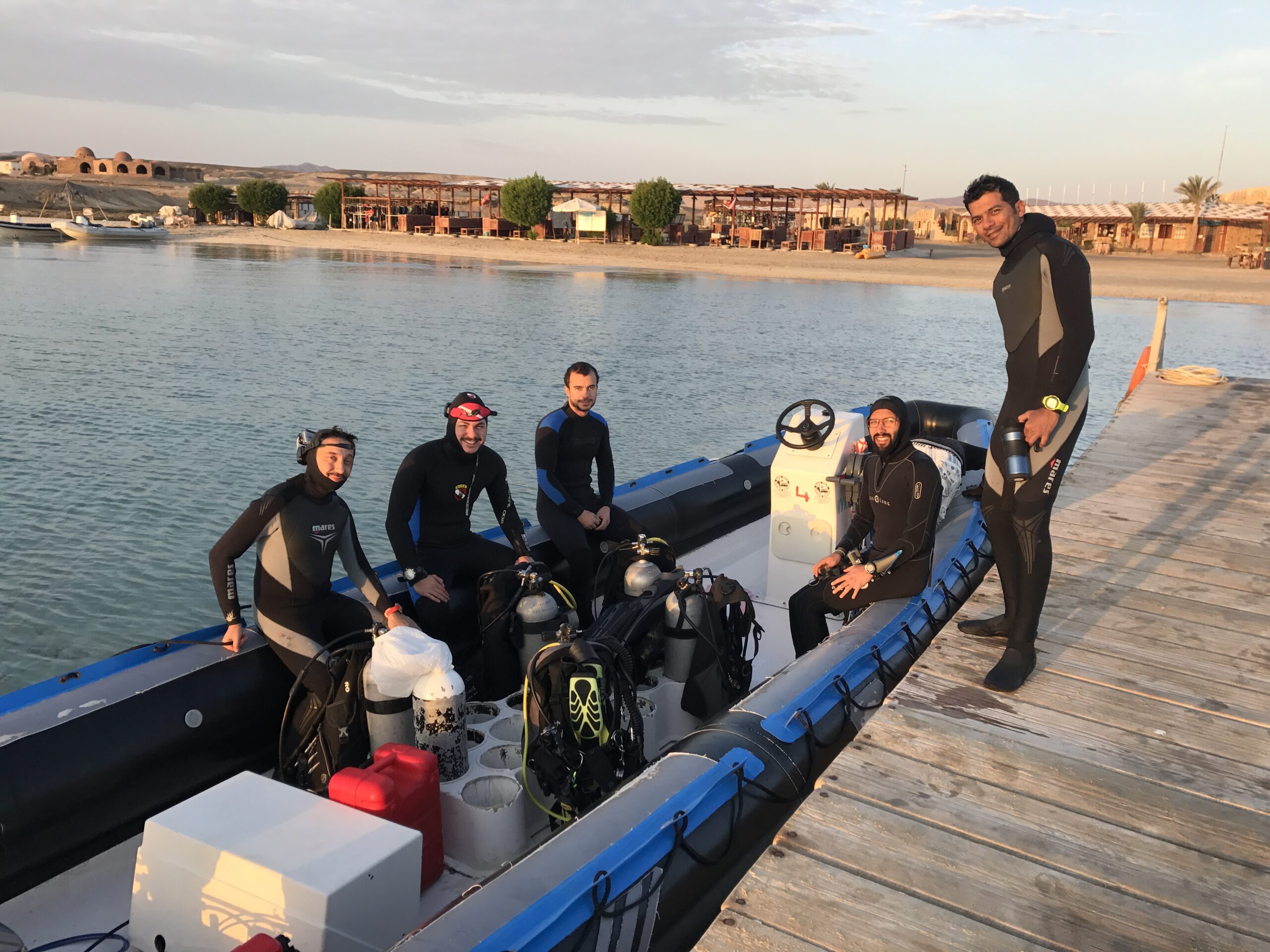
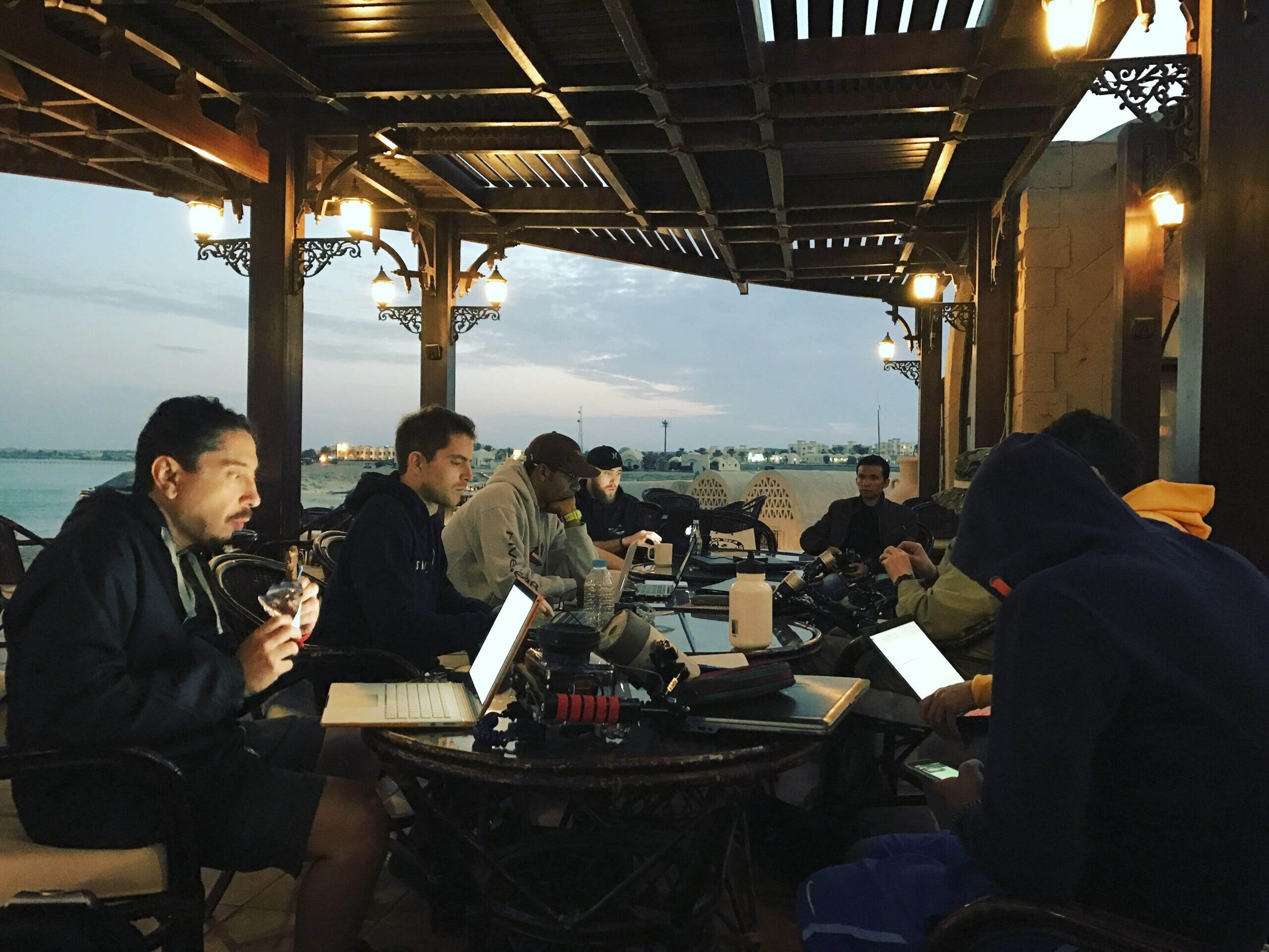
Don't just improve, start a new career.
We like to be judged by results and our results prove how valuable our workshops can be.
We have employed two people we first met as guests on our workshops. One guest has gone on to work for the BBC and another as a full time filmmaker for a marine NGO. Both credit the skills they learned on our workshop with starting their careers
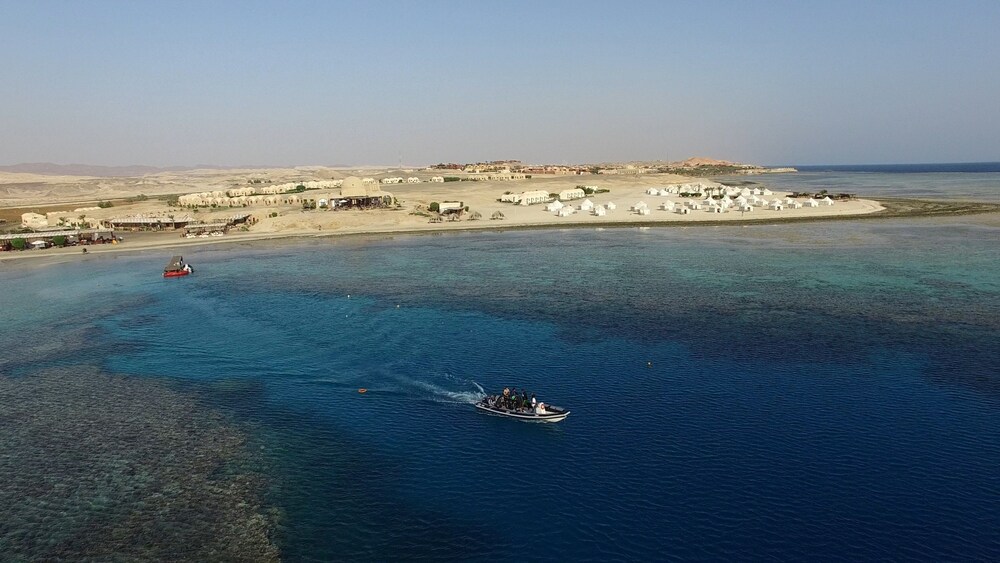
Marsa Shagra
Located in the Southern Red Sea, just south of Marsa Alam, Marsa Shagra offers serenity, isolation and world class shore diving in abundance. The diving here is in fact so good, our workshop leader, David Diley, classes it as his favourite shore diving destination on the planet.
Warm, clear blue water, more than 300 species of fish, 100 different species of coral, Turtles, large Moray Eels, Blacktip and Whitetip Reef Sharks plus visits from pelagic species like Manta Rays, Dolphins, even the occasional Hammerhead and Whale Shark, Marsa Shagra is just about the most perfect place imaginable to hone your underwater videography skills.
Shore diving is unlimited and involved in the price of the workshop, plus, you also have access to other dive sites like the world famous Elphinstone, Shaab Sharm and the giant turtles and dugongs at Marsa Abu Dabab.
In your downtime between dives, you can eat in the excellent on-site cafeteria, relax in the massage tent, enjoy a drink in the Bubble Bar or a Shisha in the Bedouin Lounge. Given the quality of diving, the sites remoteness and the on-site facilities, Marsa Shagra is the serious diver’s dream destination.
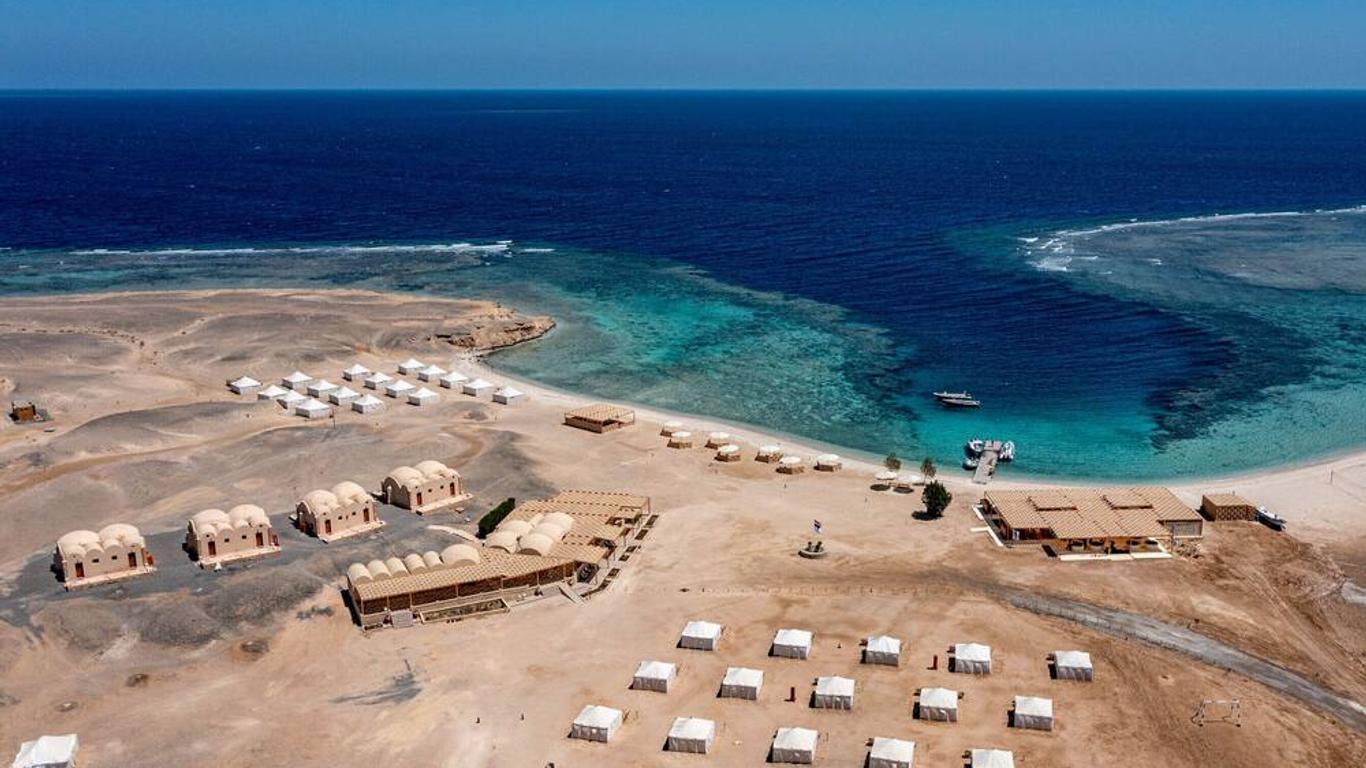
Marsa Nakari
Marsa Nakari is a charming village featuring a sheltered bay just 18 km south of Marsa Alam city. Its main appeal is its proximity to the Samadai protectorate (Dolphin House); one of the Red Sea’s most important national parks.
Wadi El Gemal and its delta are the central theme of the terrestrial reserve area while the marine component of the protected area encompasses a strip of coastal marine waters featuring patches of mangroves, as well as a number of marine islands (the Hamata archipelago and Wadi El Gemal Island).
The house reef of Nakari Village offers a very interesting landscape in the bay and beautiful coral formation on the outside fringing reef. On the north side there is usually a large school of small barracuda swimming in circles. There is a good change of encounter a turtle or giant moray at night. On the south the landscape is chaotic and very interesting with many canyon and pillars shelter of species such as lion fish and groupers. From the corners to the south or north part of the fringing reef are stunning coral gardens and nice drop off with a chance to see pelagics cruising by and sometimes dolphins.
What You Will Need
- Your own camera and waterproof housing. This could be anything from a compact with video capability, to a GoPro, DSLR or broadcast spec camera. If it shoots video and the housing is depth rated to allow compliance with SCUBA Diving up to depths of 30m, you’re good to go.
- Laptop. We recommend you bring a laptop to allow you to view and back up your footage otherwise we will find it difficult to assess your progress without the ability to see what you are shooting on a decent sized screen
- Editing Software. It doesn’t matter if you are using freeware such as iMovie or DaVinci Resolve Lite, or more professional software such as Premiere Pro, it’s advisable for you to have editing software to hand if you want to practice the techniques you learn whilst on location.
- Harddrive(s). We strongly advise you bring an external hard drive between 500GB and 1TB to allow you to back up your footage on a daily basis. You will learn effective ways of logging your footage for an edit during the week so this is vital, we don’t want you to lose anything. Even better if you bring two so you can back up your main drive!
- Card Reader. This is pretty self explanatory, you will need a way to get your footage from the card, to your hard drive.
You are also welcome to bring anything else you have which you may find useful, tripod, microphone, external sound recorder, notebooks, pens etc. but do bear in mind the luggage allowance!
